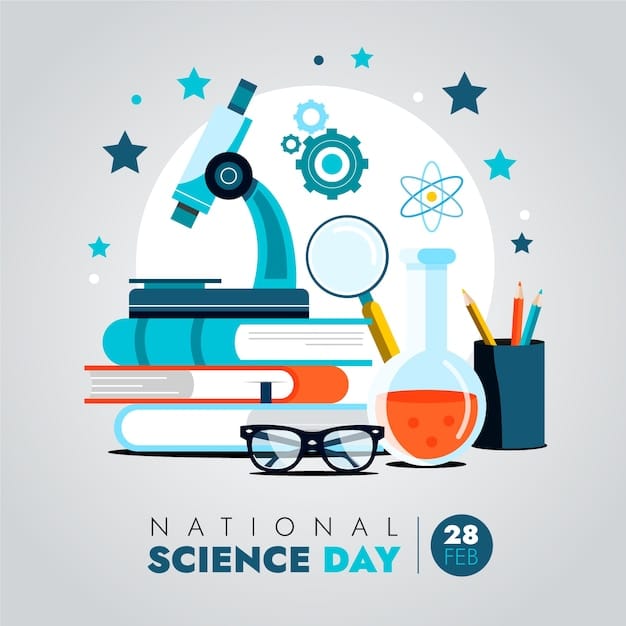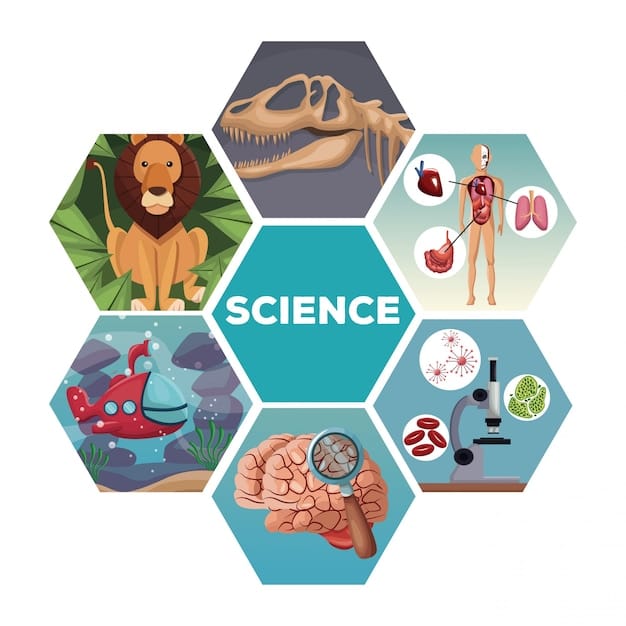10 Study Tips for Science Exam Preparation For Students
10 Study Tips for Science Exam Preparation For Students
Master Your Science Exams with These 10 Essential Study Tips for Students
Science can feel like a rollercoaster—one minute you're fascinated by chemical reactions, and the next, you're tangled up in Newton’s Laws or cell structures. But here's the good news: with the right study strategies, you can achieve good marks and score good marks , and even the most intimidating science exam can be tackled with confidence and clarity.
But let’s face it: preparing for science exams can feel overwhelming, especially with the vast syllabus and pressure to perform well. Whether you're in Class 8, gearing up for your board exams in Class 10, or tackling higher-level subjects, you need a strategy for each study session that goes beyond cramming. That’s where this guide comes in to assist with your test preparation .
Let’s dive into the best study hacks that can make science fun, helpful digestible, and totally conquerable!
1. Create a Study Plan: Structure Your Science Revision
Ever tried building a rocket without a blueprint? That’s what studying without a plan feels like. A structured study plan is your academic GPS—it tells you where to go, how fast to move, and keeps you from getting lost.

Break down your science syllabus into bite-sized chunks. Instead of staring at a 20-page chapter on “Electricity,” assign specific subtopics to each day—Ohm’s Law on Monday, Resistance on Tuesday, and so on. Use a color-coded planner or a digital calendar to map your timeline and check off topics as you go.
A well-structured study schedule is the foundation of effective test preparation.
2. Focus on Key Topics: Prioritize Your Science Syllabus
Science exams aren’t about studying everything equally—they're about studying smart to score good marks . Take a deep dive into past year papers or ask your teachers about important concepts and high-weightage topics. You’ll start noticing patterns. Maybe “Acids, Bases, and Salts” pops up every year in chemistry. Or perhaps “Heredity and Evolution” always sneaks in a 5-marker in biology.
Highlight these crucial chapters and ensure you know them inside out. Make them your “science best friends” during revision season.
You can also mark the 'HOTs' (Higher Order Thinking Skills) questions or frequently repeated MCQs and short answer questions from reference books or mock papers. Pair this with targeted revision—you’ll not only feel more prepared, but you'll also have more time left to polish weaker areas. Prioritizing isn’t about doing less, it’s about doing what matters more.
3. Break Down Complex Concepts with Diagrams and Charts
Some science topics can feel like decoding alien languages. That’s where diagrams, flowcharts, and tables swoop in like superheroes, promoting active learning, especially for complex topics. For visual learners, visuals don’t just make your notes look cool—they help you understand and remember information faster.
For instance, instead of memorizing the process of photosynthesis, draw it out. Add arrows, colors, labels, and boom—it sticks. Use Venn diagrams to compare concepts (like acids vs. bases) or flowcharts to show sequences (like the water cycle or digestion).
🎯 Pro Tip: During exams, neat diagrams with labels can fetch extra marks. Practice drawing them quickly and correctly.
4. Practice with Sample Papers: A Powerful Tool for Exam Success
Think of sample papers as your science training ground. Solving them regularly helps you understand how questions are framed, the kind of keywords examiners look for, and how to structure your answers within time limits.
Don’t just solve them—analyze them. Check where you made mistakes. Were they conceptual? Did you run out of time? Use that feedback to tweak your strategy.
🎯 Pro Tip: Set a timer and recreate real exam conditions when solving these paper to help manage your stress s. No cheating. No phones. Just you, your pen, and the ticking clock.
5. Revise Effectively: Use Mind Maps and Flashcards
Revision is where the magic happens. But re-reading textbooks can get boring—and ineffective. Instead, use creative tools like mind maps and taking notes to make your revision dynamic and fun! Flashcards are great for quick facts, formulas, chemical reactions, or biological terms. They condense information into bite-sized, easily digestible pieces.
Create your own flashcards using index cards or apps like Anki and Quizlet. On one side, write a question or keyword (like “Ohm’s Law” or “Mendel’s Laws”), and on the other, the answer or explanation. Carry them around and quiz yourself anytime—on the bus, during breaks, or just before sleeping. It’s a quick way to reinforce learning.
Mind maps work wonderfully for summarizing large chapters. Use a central topic—say “Sources of Energy”—and branch out into types, advantages, disadvantages, and diagrams. This visual summary helps connect ideas logically and reduces your dependency on long texts.
Don’t forget to revise regularly! One revision isn't enough. Use spaced repetition—review topics after a day, a week, then a month. This technique strengthens your memory over time and prevents forgetting. Remember, it’s not about how much you read, but how well you remember it. So revise creatively—and keep those neurons firing!
6. Time Management: Avoid Last-Minute Cramming
Let’s bust a myth—cramming is not cool. Staying up till 3 AM the night before your science exam might give you temporary confidence, but it rarely ends well. You forget things. You panic. You blank out.
Instead, plan your daily study blocks with focused time intervals—say, 45 minutes of study followed by a 10-minute break (hello, Pomodoro Technique!). This keeps your mind fresh and focused.
Identify your peak productivity hours (morning for some, night owls for others) and schedule heavy subjects accordingly.
7. Stay Healthy and Energized: The Role of Rest in Exam Preparation
You can’t pour from an empty cup—and that’s exactly why health matters during exam prep. Studying for long hours may seem productive, but if your body is tired and your brain foggy, you won’t retain much. Start by maintaining a balanced diet rich in proteins, fruits, and veggies. Avoid heavy junk food, which can make you sluggish. Hydration is equally important—keep a water bottle by your side at all times.
Sleep is your brain’s best friend. Aim for 7–8 hours of sleep every night to allocate time for rest and recovery . Research shows that sleep helps consolidate memories—so if you’ve studied something, sleep will help you remember it better! Avoid screen time before bed; instead, wind down with music, a book, or meditation.
Incorporate light physical activity into your routine. A quick walk, a few stretches, or even dancing to your favorite song can boost your mood and energy. Deep breathing or mindfulness exercises can help reduce anxiety and improve focus.
Remember, taking care of your health is not wasting time—it’s investing in sharper focus, stronger memory, and better performance. A healthy mind in a healthy body can conquer any exam!
8. Practice Time-Bound Mock Tests: Simulate the Real Exam Environment
If you’ve ever felt anxious during exams, chances are you weren’t fully familiar with the format or pressure. That’s where time-bound mock tests come in. These are your dress rehearsals. Pick a day, set a timer, and sit down with a full paper under exam-like conditions—no distractions, no breaks, and definitely no peeking at notes.
Start with subject-wise mocks: one for Physics, one for Chemistry, one for Biology. Then move to full-length integrated science papers. After each test, assess your answers critically using mock tests . Did you manage to complete it in time? Were the answers organized? Did you label the diagrams correctly? This self-evaluation helps refine your writing style and boosts your confidence.
You can also use mock tests to simulate stressful scenarios—like what if you forget a formula? How do you handle it? Building resilience in such situations can turn exam anxiety into exam readiness. Practice under pressure, perform like a pro!

9. Focus on Conceptual Understanding Over Memorization
Science is a subject that thrives on logic, reasoning, and application. While memorization has its place—especially for formulas or definitions—it should never replace understanding, as science requires deeper insight . Focus on grasping the why and how behind every concept. Why does a chemical reaction happen? How does a circuit work? Understanding these opens doors to solving application-based questions that are increasingly common in exams.
A great way to build conceptual clarity is through peer discussion or teaching others. Try explaining the topic to a friend, sibling, or even your pet! If you can teach it simply, you understand it deeply. Watching educational videos, using simulation apps, or performing small at-home science experiments can also deepen understanding.
When reading a concept, ask yourself: “Can I apply this in a real-life scenario?” For instance, if you’re learning about Newton’s laws, try to integrate practice problems and observe them in your everyday activities—like why seatbelts tighten during sudden stops. This real-world application makes science more relatable and fun.
The examiners can always tell if a student understands or just memorized. Conceptual clarity helps you tackle tricky, twisted questions confidently. So don’t just memorize—internalize. That’s how you ace science, and more importantly, learn for life.
10. Stay Positive and Confident: The Mindset for Success
Lastly, but most importantly—your mindset can make or break your performance. Science exams can be tough, and it’s normal to feel anxious. But a positive attitude and belief in your preparation can go a long way. Whenever self-doubt creeps in, remind yourself of the effort you’ve put in. You’ve got this!
Stay away from toxic comparisons. Your classmate finishing chapters before you doesn’t mean you’re behind. Everyone learns at their own pace. Focus on your own journey. Celebrate small wins—like solving a tough question or completing your study plan for the day. These mini-celebrations keep you motivated.

Visualize success. Before sleeping, imagine yourself calmly writing the paper, recalling answers, and walking out of the exam hall with a smile. This mental rehearsal builds confidence. Keep affirmations nearby—“I am prepared,” “I will do well”—and repeat them when nervousness strikes.
And remember: one exam does not define your future. Science is vast, and exams are just checkpoints. Learn from your mistakes, stay curious, and keep moving forward. You’re not just studying for marks—you’re becoming a scientific thinker. That mindset will take you far beyond any exam hall.
Final Words:
Excelling in a science exam isn't just about memorizing formulas and definitions; it's about understanding scientific concepts deeply and applying them effectively. Whether you're in a science class preparing for board exams or aiming to score good marks in your next exam, these ten study tips will guide you toward achieving your academic goals.
If you're looking for extra support in mastering scientific concepts and scoring good marks in your science exam, Codeyoung is an incredible platform to explore. Designed especially for school students, Codeyoung offers interactive and personalized online courses that make subjects like science not just easier—but exciting! Through engaging activities, live classes, and fun experiments, Codeyoung helps students study science in a way that's practical and relatable. Whether you need help breaking down complex topics, learning how to create mind maps, or simply want to practice problems with expert guidance, Codeyoung is here to back you up.

Study Tips for Science Exam - FAQs
1. What are the best tips for science exams?
When it comes to the best tips for science exams, success starts with test preparation and a well-structured study schedule. Begin by identifying important concepts and breaking down all the concepts into smaller parts for better understanding. Use study guides and sample papers to get familiar with the test pattern. Study science actively by creating flashcards, mind maps, and writing answers in your own words. Visual aids help visual learners master complex topics. Always revise in a quiet room to enhance memory. Don’t forget to take regular breaks, avoid junk food, and use a cheat sheet for important formulas. Stay positive, set academic goals, and keep your next exam in mind. These strategies not only help you score good marks but also reduce stress.
2. How can I improve my performance in the science exam for Class 10?
To improve in the science exam for Class 10, start your test preparation early. Set up a daily study schedule where you allocate time to each subject, and cover all the information in your test material. Science requires you to focus on important concepts, practice difficult questions, and reinforce scientific concepts with visuals. Use your own words to explain theories and take effective notes. Solve sample papers regularly and review your mistakes. Engage in active learning with your science teacher or a family member. Take regular breaks to avoid burnout and don’t forget to double-check answers. These practices will help you score good grades and full marks in your final exams.
3. How should I prepare for the science examination in Class 10?
To prepare for the Class 10 science exam, begin with organizing your test material and study guides. Prioritize important information from the science class and develop a consistent study schedule. Break down complex topics into smaller bits and use mind maps or creating flashcards to boost memory. Practice problems daily and focus on writing in your own words. Spend your study time in a quiet room to enhance concentration. Ask your science teacher to clarify scientific concepts that are confusing. Don’t skip regular breaks, and limit junk food to stay healthy. This is the best method to study science, retain words, and excel in your next exam.
4. What are the most important tips for the Class 10 science exam?
Some of the most helpful tips for science exams include setting clear academic goals, sticking to a smart study schedule, and solving sample papers. First, focus on important concepts and break all the concepts into visual forms using mind maps. Understand the scientific concepts instead of just memorizing them. Engage in active learning during every study session by discussing with your science teacher or a family member. Take notes in your own words and review them regularly. Don’t forget to double check your answers before submission. This approach not only improves test preparation but also ensures you’re ready for board exams and your final exams.
5. Are there any examination tips for students to help with board exams?
Absolutely! For students aiming to excel in board exams, first create a realistic study schedule and stick to it. Start your test preparation early, covering all the concepts in your science class. Utilize study guides, practice difficult questions, and review important formulas. Use techniques like creating flashcards, mind maps, and rewriting in your own words to enhance memory and understanding of scientific concepts. Discuss tough topics with your science teacher or a family member. Take regular breaks to maintain energy and avoid feeling overwhelmed. A quiet room, active teaching, and the best method of study science will help you score full marks and achieve good grades.